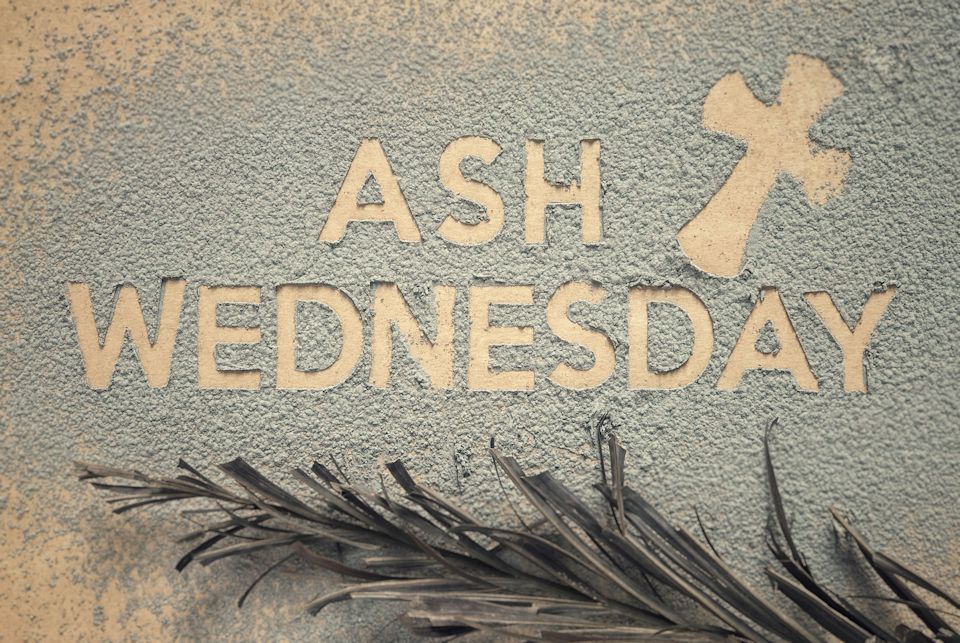
Each year we pause to address some of the questions associated with this day, Ash Wednesday – the first day of Lent. What exactly is Lent?
The word comes from the Old English term for “lengthen.” As Easter approaches, the amount of daylight grows longer.
More than a thousand years ago, followers of Jesus began to set aside the 40 days before Easter as a kind of annual spiritual journey – an opportunity to reconnect with God in specific ways.
This year Easter Sunday is April 4. If you do the math, you’ll discover there are actually 46 days between February 17 and April 4. The six “extra” days represent the six Sundays during Lent. Some Christians treat these Sundays as “little Easters” – they are like rest stops on the journey in which some folks choose step back, for 24 hours, from their Lenten commitments.
By Lenten commitment, do you mean giving something up?
Yes, a number of people choose to give up something for Lent. Think of taking something out of your backpack before beginning a 40-day hike. “I choose not to carry this around with me for the next six weeks.”
During the Middle Ages it was common for Christians to give up meat, fish, eggs, and butter throughout Lent. Nowadays it’s more typical for Westerners to surrender one of those things that can approach the level of addiction – perhaps soda, coffee, chocolate, television, social media, or video games. It doesn’t take much for us to realize that these are probably things we could and should surrender for far longer than 40 days.
Can Lent also be a time to “take on” a new habit or practice?
Absolutely. The balance, in fact, is quite healthy. Just as we leave something behind on this spiritual journey, we also pick up a new perspective or behavior or commitment.
For you that might be an accelerated pattern of personal prayer or Bible reading. It could mean writing a daily thank-you note to 40 different people or choosing to offer a special word of encouragement to someone every day, especially considering our shared struggles during the pandemic. It might mean pursuing a specific plan to serve the poor. The options are endless.
Will the morning reflections have a special Lenten focus this year?
Yes. We’ll dive into Jesus’ parables – the two dozen or so stories that were his chief means of describing the reality of God’s rule on earth.
Together we’ll meet the widow who keeps annoying the corrupt judge until he rules in her favor; the affluent farmer who figures he has it made, not realizing it’s his last night on earth; the social misfits who can’t believe they’ve received an invitation to the biggest party of the year; and the heartbroken father who stands at the front door of his house, straining to see if his lost son will ever come home.
But isn’t Lent just for Catholics?
In truth, these special days are celebrated across the entire Christian spectrum. But since they got traction during the Middle Ages, their association with Catholicism has been particularly long and strong.
What do the ashes mean?
Many followers of Jesus smear ashes on their foreheads in the shape of the cross on this first day of Lent. This tradition reflects a number of images from Scripture.
There we learn that life is fragile (“ashes to ashes and dust to dust”). We recall the ashes of incinerated sacrifices: our surrender of something we count valuable in order to gain something even more valuable – a heart that is turned toward God. And we remember that people in Bible times, in order to express extreme anguish over the condition of their souls, would sometimes sit in sackcloth and ashes.
One poignant Catholic tradition is to incinerate the palm leaves used in the prior year’s Palm Sunday service, and to keep them for use on Ash Wednesday.
This day is essentially a time to remember not only that life can be hard, but that it’s really hard to try living apart from a relationship with God.
What if I completely blow my Lenten commitments?
You won’t be the first person. Or the last.
Always remember: God won’t love you more if you think you “succeed” in following him. And God won’t love you less if you fall flat on your face.
What comes, after all, at the end of the season of Lent? We arrive at the cross, where Jesus died for our sins and failures.
And then comes Easter with its assurance that the worst thing that ever happened to the best Person who ever lived will ultimately bring about the best things that can ever happen to us.
